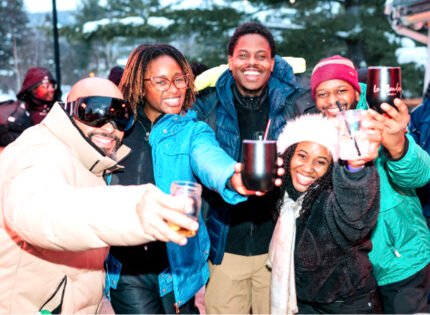Montreal’s Cultural Icon to receive BTW’s Martin Luther King Jr. Acheivement Award
Melissa Murphy
As the year comes to an end, Montrealers cast their eyes forward to Black Theatre Workshop’s annual VISION Celebration, which has become a signature event held early in the new year and also serves as a lead into Black History Month.
Next year’s commemorative event, the 32nd annual staging, becomes even more special because the honorary recipient of the Martin Luther King Jr. Achievement Award is a Montreal cultural icon, Don Jordan.
The acclaimed actor and dancer was all class as he shared a few gems about the life of a dedicated and determined performer via a phone interview with the Community Contact.
Excited and surprised by the acknowledgement of his accomplishments by the BTW, his career is one that can be an inspiration for many.
By the time Jordan was six, he was already no stranger to the stage, performing alongside his father—a celebrated musician in his own right.
And by 15, Jordan was the first Black performer to be featured on a Quebec television show. Every Saturday morning in the late 1960s into the 70s all of Montreal sat in front of their televisions to watch “Like Young.”
Don Jordan became a household name in the city and long before Michael Jordan, all young men wanted “to be like Don.”
He is also an accomplished actor who has made appearances in more than 60 films and television shows, and has the distinction of being the first Black president of the actors union, Association Of Canadian Cinema Television and Radio Artists (ACTRA).
Also among his many achievements, Jordan established himself as one of Canada’s top male models.
He recalls the “heavy responsibility” placed upon him, “at a time when Blacks were not that visible, especially in Quebec.”
The self-described, ‘sheltered kid’ took some time to grapple with the new role, but “after the first show, reality hit me. The producers brought me into their offices, and told me that I had to be mindful of everything that I said and did, because I was representing the Black race.”
What should have been an insurmountable amount of pressure at such a young age, Jordan maintains, is what helped him through. He remembers that this was “something that I kept close to my heart, and tried to be the best representative [of]… and in turn hopefully made a difference in someone’s life.”
Growing up with the influences of music and Hollywood powerhouses like Nat King Cole, Sammy Davis Jr. and Duke Ellington, “I learned a lot … about just being who you are, not putting on any airs, or [seeking] special treatment. It just became a part of my make-up about the arts and what the arts meant to me personally.”
Lessons he hopes to continue to instil in young Montreal performers, he acknowledges, “though Black performers are more visible [than when I began my career]. Unfortunately, I do not find that there are enough opportunities, let alone for Black performers.”
He believes, “people [ought to be] a little more willing to learn about other cultures, not just mainstream images … on television or in videos which portray Blacks in a specific light.”
With influences from the United States often at the forefront of what represents the Black existence in mainstream media, this often deviates from the ability to present well-rounded images of blackness, especially through the eyes of Black Montrealers and Canadians.
In helping up-and-coming performers to break through these barriers, Jordan offers some advice: “Never look at it as hitting a wall, but a set of stairs. You can bump into that step numerous times, but by giving it time, especially when you love what you do, you will find the tenacity to climb the next step. And even as you continue to hit the next steps, you have to be persistent [to make it to the top]. It’s never about the accolades, or the fame, but about the love you have in your heart for what you do.”
For all of his achievements and contributions, Jordan will receive The Dr. Martin Luther King Jr. Achievement Award, which goes to “an artist in the community that has elevated their artistic discipline through their work, and the way they proliferate art throughout Canada and beyond.”
The award will be presented to him at the Annual Vision Celebration Gala on Saturday, January 27, 2018, at the Hotel Omni Mont-Royal (1050 Sherbrooke St W, Montreal).
The Dr. Clarence Bayne Community Service Award will also be presented that night to Denburk Reid, a Montreal basketball superstar and outstanding community worker.
Information: #432 – 03680 rue Jeanne-Mance, Montréal, and Québec, H2X 2K5. Canada. Call 514-932-1104.
•info@blacktheatreworkshop.ca
•www.blacktheatreworkshop.ca












